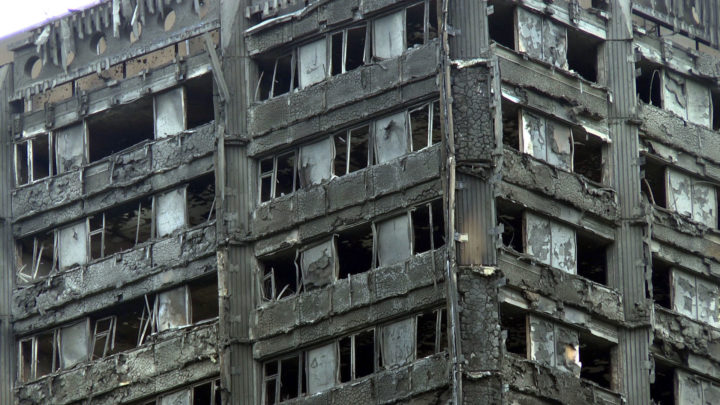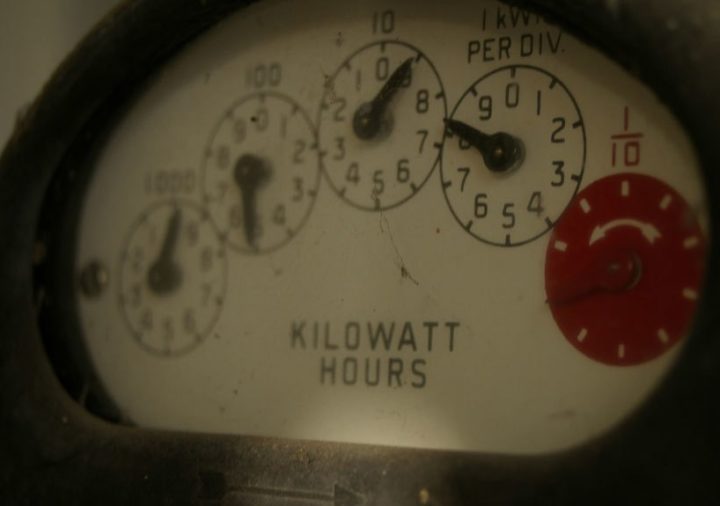After the fire: Joining the dots on insulation
UK wants and needs to cut energy waste, but Grenfell Tower gives new perspectives
By Richard Black
Share
Last updated:
Two entirely different conversations co-exist in the UK at the moment regarding insulation.
One is couched in numbers and graphs and targets – a technocratic conversation on climate change, fuel poverty and affordability.
The other is a very human conversation about lives lost in the Grenfell Tower disaster, the UK’s most horrendous conflagration in years, and about risks to others.

What went wrong in the Grenfell Tower incident we may not discover definitively for months, even years, after forensic and judicial processes have concluded.
But what we can already say for sure is that at its root lies a series of bad decisions, in which:
- officials and politicians overly friendly to business interests and cost-cutting lowered standards and cut resources
- firms sold materials for use on tower blocks in the UK when they would not do so in other countries
- public authorities shovelled responsibility for property management onto subsidiary bodies and put safety inspections out to competitive tender rather than taking responsibility themselves
- zeitgeist politicians advocated deregulation at all costs.
All of that, one hopes, will be examined in the course of a public inquiry that should leave no causal factor un-examined, from ministers’ decisions downwards.
But equally, those advocating energy efficiency cannot proceed as though Grenfell Tower never happened. The real fears of people need to be acknowledged; in the aftermath of that terrible conflagration, can there be anyone who has not had at least a fleeting thought to their own insulation, and asked whether it carries any fire risk?
Seeking warmth
Insulation has to have a future. Science tells us that climate change is not a trivial matter; but even without climate change, cutting energy demand is a pragmatic (and popular) thing to do, for all sorts of other reasons.
Cutting energy waste: The numbers
- £30bn per year: What Britain spends on space heating
- £3.6 million: What treating the health effects of fuel poverty costs the NHS per day
- Half: Impact on home energy demand of effective wall insulation
- 21%: Decline in gas demand for heating Britain's homes since 2000
- 80%: Proportion of UK public backing subsidies for cutting energy waste
Download our factsheet here.
People like insulation and what goes with it. In our recent survey, four-fifths of Britons not only back measures that cut energy waste, but want such measures subsidised. Surveys also show that warmth and efficient energy use are among our top desires when buying a house.
Then there’s money. Eleven percent of Britons live in fuel poverty, and many of those people will be in older and poorer-quality dwellings that lack insulation or other energy efficiency measures; their money simply disappears through ill-fitting windows and thin walls, adding to the affordability crisis among Britain’s ‘just about managing’ population.
Energy efficiency helps: Britons have more than recouped investments in it over the last 10 years, with the net effect being to cut the average energy bill by about £10 per month.
So, even if you’re one of the dwindling number of people who choose not to accept the greater mass of scientific evidence on climate change risks, there are powerful social reasons for insulation and other measures to cut energy waste. And on climate change, the public doesn’t agree with you, with the popular mandate for reducing carbon emissions unarguable.
However… even before the Grenfell Tower disaster, the government had a fourfold problem with its energy efficiency policies:
- lots of the straightforward stuff (cavity wall & loft insulation) has already been done, meaning the remaining fruit is higher-hanging
- the last flagship policy for homes, the Green Deal, was not a success, which has basically lost five years (and counting) of progress
- that failure has left some Conservative politicians and government officials believing that energy efficiency is just too hard
- whereas some parts of a low-carbon transition can best be achieved through use of market mechanisms (such as auctions for renewable energy capacity), energy efficiency isn’t generally one of them – as Michael Grubb and others have shown, it’s done most efficiently through regulations and an economic philosophy that acknowledges people as people. And that’s not inherently Conservative-friendly.
Now, we can add a fifth potential obstacle: public concern over the safety of some energy efficiency measures.
Can do, must do
Yet, the government is going to have to make energy use in the home more efficient.
The Committee on Climate Change, the government’s statutory advisor, said last week in its annual progress report that greenhouse gas emissions from heating buildings need to fall by about one-fifth within the next 15 years. Part of that can come from adopting heating methods that generate lower greenhouse gas emissions than at present – but cutting waste also needs to be part of the mix.

The Conservative Party committed to energy efficiency in its manifesto, noting that ‘an energy efficient home is a more affordable and healthy home’ and pledging to help people save energy. For businesses too, it said that because ‘an energy-efficient business is a more competitive business, we will establish an industrial energy efficiency scheme to help large companies install measures to cut their energy use and their bills.’
So that’s clear. Energy efficiency policies are here to stay; they do work, and the government is committed to introducing them.
What those policies will be is currently an open question. There is no shortage of advice from academics, think-tanks and industry bodies; ministers just need to make some decisions, and quickly.
One obvious point is that it is far better to build energy efficiency into buildings from the start rather than retro-fitting, and one immediate ‘win’ would be to reverse George Osborne’s dogma-driven and disastrously short-sighted decision to scrap the Zero-Carbon Homes policy.
The other big question is what lessons need to be learned from Grenfell Tower. And there are surely two big ones:
- Increasing energy efficiency cannot put the most basic requirements of buildings, such as fire safety, at risk
- Standards for materials and practices need to be the highest they can be across the board, with adequate resourcing, adequate enforcement and a clear chain of public accountability.
Grenfell Tower does not mean that we stop cutting energy waste; there are too many reasons to keep on doing it, not least that people want it done.
But it does demand that we do it properly, with the diktats of 'cutting health and safety red tape' and offloading management to arms-length bodies overturned for good.
Share